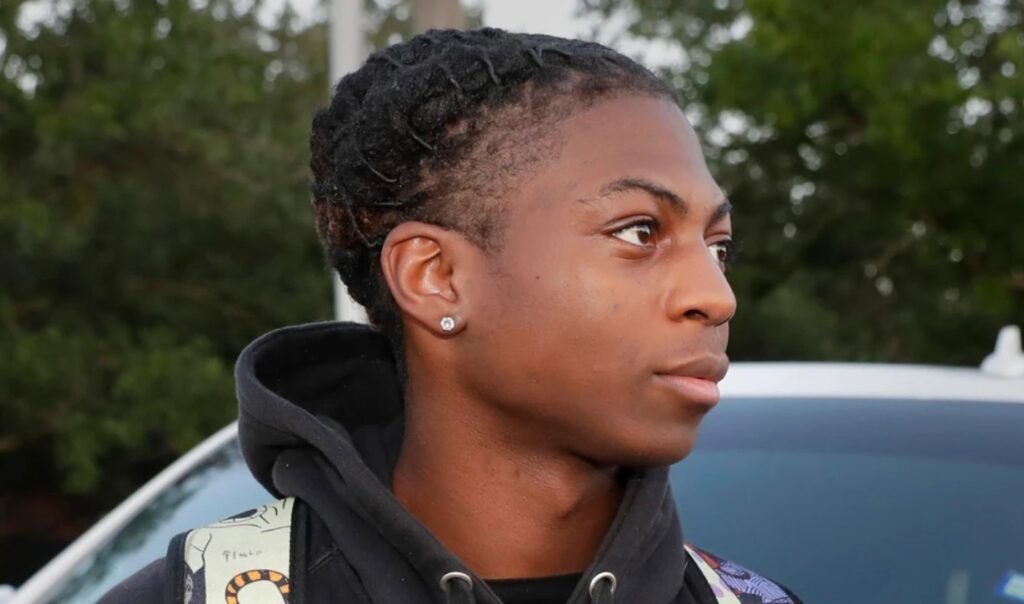A high school student in Texas is facing discrimination from his school district over his hairstyle. Darryl George, 17, has been suspended twice for wearing his hair in twisted dreadlocks, which he says is part of his cultural identity. His family and civil rights activists are challenging the district’s policy, which they say violates the new CROWN Act that prohibits hair-based discrimination.
The CROWN Act and its implications
The CROWN Act, which stands for Create a Respectful and Open World for Natural Hair, is a state law that was passed in Texas in June 2023. It aims to protect people from discrimination based on their natural hair texture and styles, such as braids, locks, twists, and afros. The law applies to schools and workplaces, and states that hair discrimination is a form of racial discrimination.

The CROWN Act was inspired by De’Andre Arnold, a former student who sued Barbers Hill ISD in 2020 for suspending him over his dreadlocks. He received national attention and support from celebrities, such as Ellen DeGeneres and Alicia Keys. His case was settled out of court, and he graduated from another school.
However, the same district is now facing another lawsuit from Darryl George’s family, who claim that the district is violating the CROWN Act by enforcing a dress code that restricts the length of male students’ hair. The district’s policy states that male students’ hair must not extend below the eyebrows, the ear lobes, or the top of a T-shirt collar. The policy does not apply to female students, nor does it prohibit male students from wearing braids, locks, or twists.
The suspension and the lawsuit
Darryl George has been growing his dreadlocks for 10 years, and says they are part of his Black culture and heritage. He wears his hair up when he is in school, so it does not go below the required length. However, he was suspended for the first time on Sept. 7, 2023, after he participated in a “hat day” fundraiser. He said he was told that his hair was too long even though he had a hat on.
He was suspended again on Sept. 20, 2023, and placed in in-school suspension (ISS), where he had to sit in a cold room on a stool for seven to eight hours without proper instruction or lunch options. He said he was told that if he did not cut his hair, he would be transferred to an alternative school.
His family filed a complaint with the U.S. Department of Education’s Office for Civil Rights, alleging that the district is discriminating against him based on his race and gender. They also filed a lawsuit in federal court, seeking an injunction to stop the district from enforcing its policy and violating his rights under the CROWN Act.
The district responded by filing a declaratory judgment lawsuit in state court, asking for clarification on whether the CROWN Act prohibits grooming policies that address the length of a male student’s hair. The district argued that its policy does not discriminate against any hairstyle or texture, and that it has a legitimate interest in maintaining a safe and orderly learning environment.
The support and the backlash
Darryl George has received support from his classmates, some of whom have longer hair than him but have not been punished. He has also received support from civil rights activists, such as Quanell X and Candice Matthews of the New Black Panther Nation. They have organized protests and rallies outside the district’s headquarters, demanding justice and equality for Darryl.
They have also criticized the district’s treatment of Darryl in ISS, saying that it amounts to torture and abuse. They said he was given bologna sandwiches instead of regular school lunches, which they claimed can cause cancer. They also said he was denied proper education and social interaction.
However, the district has also received support from some parents and community members, who say that the policy is fair and consistent. They say that Darryl should follow the rules or go to another school. They also say that the CROWN Act does not apply to him because his hairstyle is not natural but artificial.
The district has defended its policy and its actions, saying that it respects diversity and individuality but also expects students to adhere to reasonable standards of conduct and appearance. It said that Darryl was given multiple opportunities to comply with the policy before being disciplined. It also said that it provides adequate instruction and nutrition to students in ISS.
The district said it hopes to resolve the matter through dialogue and cooperation with Darryl’s family and their legal representatives.
